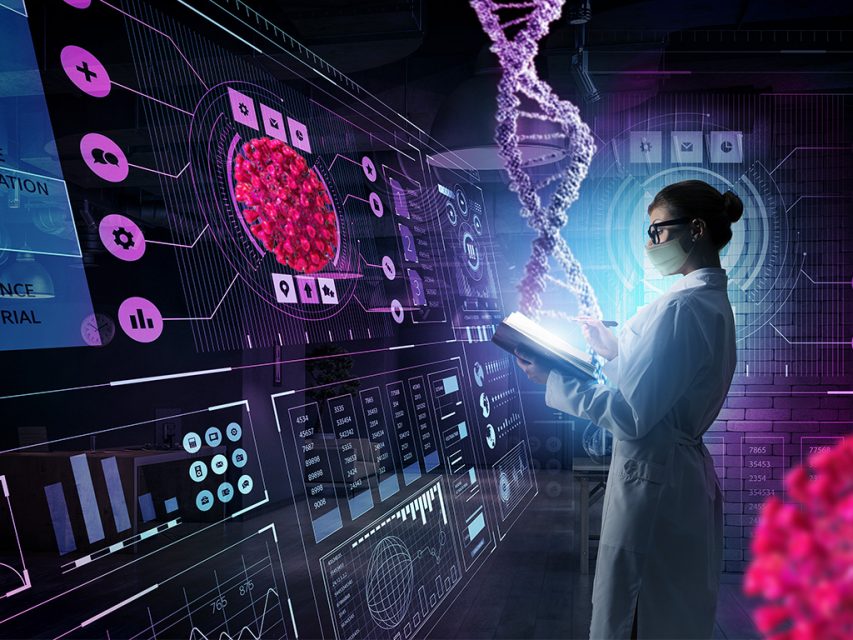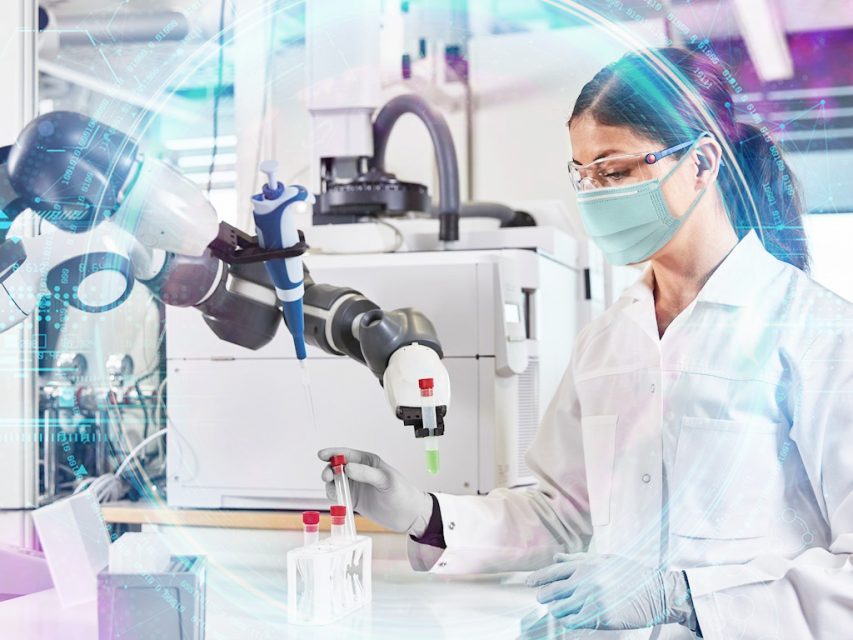If you thought that artificial intelligence (AI) was all about self- driving cars and other luxurious equipment, maybe now is the time to change your attitude towards it. Amid the current pandemic the world is facing, AI is applicable more than ever!
AI is bringing immense value to the latest scenario within the healthcare industry called COVID-19. AI development, machine learning and robotics have been a part of several sectors to enhance the processes and ease any potential data overloads. Since the whole world has been taken unprepared to deal with the exponential growth of the COVID-19 cases, AI came to the rescue. While the global health care systems were only prepared for the linear growth of patients, most hospitals have faced significant collapse. That’s the reason why now more than ever, human intelligence needs a helping hand by strong AI.
As soon as the growth of the virus happened, in January 2020 in China, governments throughout the world have considered the option of implementing responsible AI tools. Most of the AI tools got introduced since machines learn quite fast due to the neural networks. So, instead of training new employees to integrate within the health system, most countries decide to rely on AI. What indeed has to be emphasised is the fact that most AI tools need to be conducted or supervised by humans, to obtain optimal results and ultimate success. Therefore, it implies that AI is an addition to humans, not a replacement for them.
How Did the Coronavirus Make Disbalance?
However, since COVID-19 is still a virus that needs to be further analysed, and scientists haven’t intersected it that much, most AI tools are used for coping with:
- the overburdened customer service centres, by introducing chatbots and online screening programs;
- tracking down whether people have the symptoms of COVID-19, within the centres for disease control and prevention (CDC);
- and lately, AI development has been used to identify the vulnerable patients that are most likely to develop the Acute Respiratory Distress Syndrome (ARDS) - the leading cause for death in patients with COVID-19.
Up until now, 15th April, there are about 2 million coronavirus patients worldwide. So, how has AI helped within the battle or reducing the negative outcome and bearing the exponential growth of COVID-19 patients?
In this article, we’ll give you a glimpse of some of the ways and examples where AI has correctly been used within the healthcare industry during the latest pandemic. Here’s how different countries used learning algorithms to keep a step ahead of the virus.

Voice Response Systems and Chatbots as an Aid to the Overwhelmed Healthcare Hotline
Most of the hospitals around the world offer hotlines to welcome and cope with patients. According to the symptoms patients express on the hotline, the hospitals redirect the patients to home isolation and treatment or the emergency department.
However, due to the panic and similarity of the symptoms of COVID-19 with other upper-respiratory issues, it’s prevalent for these hotlines to get overloaded with patients. In addition to the long wait time - around 30 minutes to an hour, many people get frustrated and leave the call before speaking with a professional. It was a frequent instance in the United States, the number one country on the list, having around 7 thousand positive cases of coronavirus.
For that reason, the AI tool introduced to solve this issue included interactive voice response systems and chatbots. The self-triage option for patients got available due to AI speech recognition and deep learning ability. A perfect example of using an upgraded AI alternative is Seattle's Providence St. Joseph Health system that implemented an online real time screening tool. The tool created in collaboration with Microsoft offers the possibility to discern between patients that could be suffering from COVID-19 and those who have a less severe infection.
Infrared Sensor Systems at Most Hospitals As a Red Alarm for Incoming COVID-19 Patients
AI-powered sensors and thermal cameras in front of hospital entrances and even at city entrances, at airports, train stations, etc. are ubiquitous. They offer some protection against the spread of the virus and track suspicious cases of people that have elevated body temperature. These no-contact infrared systems would single out visitors that have a fever, face discolouration, sweat or any other alarming symptoms. The aim is to protect public health.
AI Predictions on What Exactly Leads to the Worst Outcome Once a Patient Has Contracted the Virus
Just by scrolling down social media, you might have seen what the worst outcome of COVID-19 is. It’s called Acute Respiratory Distress Syndrome (ARDS) - the buildup of fluid in the lungs. ARDS is fatal for the elderly and the people who have another medical condition.
AI development adds up to the possibility of making a precise prediction on the patients that would develop ARDS. Even though the studies concerning the correctness of the AI tool are only conducted on a limited group of people, they have shown great potential.
According to the findings, the AI tool had noted that changes in the liver enzyme ALT, myalgia and haemoglobin levels would be able to predict a severe outcome. The risk of developing ARDS was estimated with 80% correctness.

Will AI Win the Battle with COVID-19?
What the future holds is yet to be explored. For example, Massachusetts General Hospital and Brigham and Women’s Hospital are looking for some futuristic options to prevent the spread of infection. It includes using robots to serve medication and do the routine checkups to patients suffering from COVID-19. Therefore, doctors would be less exposed to the risk of getting the coronavirus.
So, do you think that AI could save us or is it all based on the height of our health insurance?






